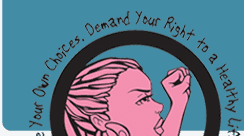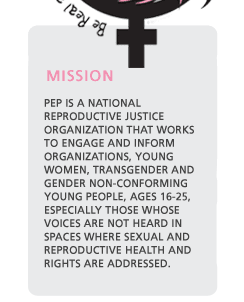Like all women of color, Asian and Pacific Islander (API) women in the United States are negatively impacted by policies and practices that aim to control their bodies, sexuality, and reproduction. Because this is a result of multiple systems of oppression based on race, class, gender, age, immigration status, and language ability, issues of reproductive justice for API women are inherently connected to their struggle for social justice. The following is a snapshot of the wide-ranging reproductive justice issues that impact API women.
Access to health care
API women face numerous barriers to health care, including lack of health insurance, weak enforcement of regulations that mandate interpretation and translation services, and health professionals who are untrained to serve diverse communities. Furthermore, cultural ignorance and discrimination by providers lead many women to distrust the medical system. A grave consequence is that API women do not use reproductive health services adequately. They have an extremely low rate of pap exams, resulting in a disproportionately high incidence of cervical cancer. Vietnamese have the highest rate of all ethnic groups, which is almost five times higher than white women.
Hazardous, low-wage employment
Barriers to health care are extremely problematic, considering API women are concentrated in low wage jobs with hazardous work environments and no employer-based health insurance or worker protections. For women who are undocumented or limited English proficient, there are few other opportunities for work besides the garment industry, nail salons, massage parlors, and electronics manufacturing. API women who perform domestic work are especially vulnerable to unregulated working conditions, and are often subjected to exploitation and abuse.
Human trafficking
To meet the demand for cheap and unpaid labor, women are trafficked illegally from countries across Asia and enslaved in domestic work, sweatshops, and the sex trade. Completely isolated from the outside world, trafficked women are extremely vulnerable to physical, sexual, and emotional violence. Without any access to health care, unwanted pregnancies, forced abortions, and sexually transmitted infections are common.
Exposure to environmental toxins
API women are frequently exposed to environmental toxins both in the workplace and at home. Nail salon workers are exposed to phthalates and other toxins, and workers in electronics manufacturing plants are exposed to chemicals and heavy metals that lead to miscarriage and birth defects. Many immigrant and refugee families from Southeast Asia have settled in low-income communities near polluting facilities that emit chemicals such as dioxin, a reproductive toxin that is linked to infertility, miscarriage, and birth defects.
Anti-immigrant policies
Immigration restrictions, backlogs, and deportation are major obstacles to family reunification, preventing API women from maintaining and caring for their families. Federal and state policies restrict non-citizens' access to public assistance and publicly funded health care and social services, including prenatal care. Citizenship documentation requirements for utilizing free and low-cost clinics cause many immigrant API women to delay or forgo care, even when care is necessary.
Every day, API women face challenges to their bodily self-determination. To achieve reproductive justice, API women must have the power and resources to decide and act on what is best for themselves, their families, and their communities in all areas of their lives.
Resources
- Asian Communities for Reproductive Justice (ACRJ) www.reproductivejustice.org
- National Asian Pacific American Women's Forum (NAPAWF) www.napawf.org
- Khmer Girls in Action (KGA) www.kgalb.org
- A New Vision for Advancing our Movement for Reproductive Health, Reproductive Rights, and Reproductive Justice, by Asian Communities for Reproductive Justice
- Undivided Rights: Women of Color Organize for Reproductive Justice, by Jael Silliman, Marlene Gerber Fried, Loretta Ross, and Elena R. Guti�rrez
- Reclaiming Choice, Broadening the Movement: Sexual and Reproductive Justice and Asian Pacific American Women, by NAPAWF
- Asian American Women: Issues, Concerns, and Responsive Human and Civil Rights Advocacy, By Lora Jo Foo
| 





